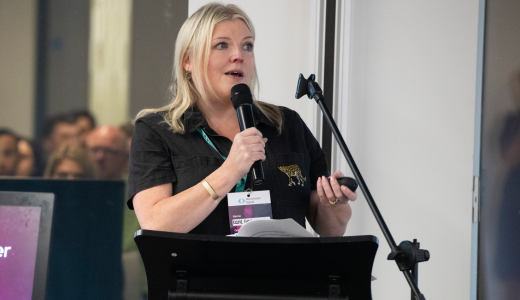
At Manchester Digital, we like to interview our members to find out a bit more about what they do and their work in the Greater Manchester digital and technology sphere. This week we're speaking with David Seed, Head of Product, Knowledge & Engineering at Lokulus.
Lokulus has developed workflow automation technology over 20 years. How has your platform and approach evolved to meet changing customer needs during that time?
Lokulus has evolved its platform and approach over the past 20 years to meet changing customer needs. With over two decades of development experience, Lokulus has empowered businesses to enhance customer experience and drive value through digital workflows. The platform provides workflow and automation software that simplifies complex challenges and improves revenue, productivity, and customer satisfaction. Lokulus allows work to be taken in from any source and actioned through workflow automation or by agents. It integrates with almost anything that generates communication from a customer, as well as back and front-office systems. Lokulus also offers comprehensive customer and case management features, including automatic customer and case recognition, integration with back-office systems, and a unified contact history. Through its automation, integration, and workflow tools, Lokulus enables businesses to increase efficiency, decrease complexity, and improve customer experience. Overall, Lokulus has continuously adapted and improved its platform to meet the evolving needs of customers.
For companies new to business process automation, what advice would you give on getting started and using it effectively?
For companies new to business process automation, here are the top 10 pieces of advice we would give:
- Understand your business processes: Identify the key areas where automation can bring the most value and streamline operations.
- Choose a versatile platform: Select a solution like Lokulus that integrates with various communication channels, databases, APIs, and back and front-office systems.
- Define clear goals: Determine what you want to achieve with automation, such as increased efficiency, decreased complexity, and improved customer experience.
- Start small: Begin by automating simple processes to gain familiarity and build confidence in the technology.
- Engage stakeholders: Involve employees from different departments to understand their pain points and gather insights for process improvement.
- Educate your team: Provide comprehensive training to ensure that employees understand how to use the automation tools effectively.
- Utilise workflow automation: Leverage Lokulus' workflow automation capabilities to eliminate manual tasks, reduce errors, and speed up processes.
- Focus on customer and case management: Take advantage of Lokulus' customer and case management features, such as automatic recognition, configurable forms, and integration with back-office systems.
- Monitor and analyse: Regularly review and analyse the performance of automated processes to identify areas for further enhancement and optimisation.
- Seek expert guidance: Consider leveraging Lokulus' expert professional services to ensure a smooth implementation and ongoing support.
By following these steps and leveraging Lokulus' core features, companies can effectively get started with business process automation and improve efficiency, productivity, and customer satisfaction.
Where are you seeing the most impact from bringing AI into automation workflows today?
We are seeing the most impact from bringing AI into automation workflows in the following areas:
- Customer service: The use of AI and automation in customer service workflows has allowed businesses to resolve queries faster and provide instant resolution.
- Process automation: AI-powered bots like CAL, FLO, and REG are effectively automating routine tasks and streamlining business processes, allowing human team members to focus on higher-value work.
- Enrichment processes: AI is being used to control the flow of work through enrichment processes such as language detection, categorisation, and form extraction.
- Personalised customer journeys: AI automation is enabling the creation of flexible customer journeys, freeing up agents for more productive tasks.
These are some of the areas where AI in automation workflows is making a significant impact.
You have experience across industries like ecommerce, fintech and travel. What best practices or lessons can you share that are transferable?
By implementing workflow automation, businesses can improve consistency, quality, and efficiency of agent interactions with their clients. This can be done by reusing standard processes, reducing agent training costs through standardisation, and boosting agent utilization by making staff capable of working across channels. Workflow automation can also provide a personalised response to customers, utilising stored information about the customer's previous interactions regardless of the channel used. Additionally, workflow automation can be applied to various stages of the customer journey, such as automating enquiry handling, deflecting with product information and FAQs, and enhancing the customer journey for buying and claiming on insurance or handling travel requests. Implementing workflow automation can streamline processes, improve customer service, and ultimately drive business success across industries.
As an established community member, what topics or issues do you think are important for us to focus on in today's tech landscape?
In today's tech landscape, it is important for us to focus on topics such as AI and business process optimisation. AI has become increasingly relevant and can greatly benefit businesses by automating routine tasks, improving efficiency, and enhancing customer experience. Additionally, business process optimisation helps streamline operations, reduce complexity, and increase productivity. By prioritising these areas, we will continue to stay at the forefront of technological advancements and provide innovative solutions to our customers.
Thank you David!




